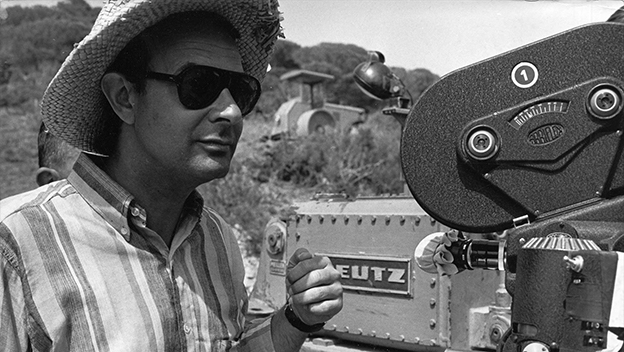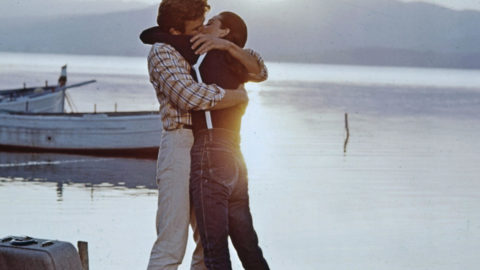In Memoriam: Stanley Donen

Over the weekend, news broke that Stanley Donen—master of the golden-age Hollywood musical with the likes of Singin’ in the Rain and On the Town and director of several more outstanding films ranging from Charade to Two for the Road to Bedazzled—had died at 94. His work spanned eras and genres, and he remains a titanic and pivotal figure in Hollywood’s history, for which he was recognized in 1998 with an Honorary Academy Award. About a decade ago, Donen was gracious enough to chat with me about his work in his Upper West Side office. Humble and generous, he reminisced about breaking into Broadway as a dancer at age 16, after attending a cattle call for Pal Joey.
“I was trying to make good movies,” he said of the directing career that eventually followed his choreography work. “My interest wasn’t only in musicals. I love movies—it doesn’t matter if it has music or not. That’s what I think is fun about a movie, to come out with another way of using… the paint. You gotta have the idea and do it. I follow my nose. That’s the way to do it. I don’t know any other way.”
In Film Comment’s July/August 1973 issue, Donen spoke with Stephen Harvey about his work, at a moment when the filmmaker was absorbed in preparations for a musical adaptation of Antoine de Saint-Exupéry’s The Little Prince—and at a time when the magazine was recognizing the greats of classic Hollywood, some of whom were perhaps not receiving as much attention as they should have. (The article appears just before a gargantuan study of King Vidor by Raymond Durgnat.) Self-deprecating in his answers, Donen emphasized again his love of movies and how much he liked to make the most of collaborations. An abridged excerpt from his comments on Singin’ in the Rain appears below:
“Arthur Freed sold his catalogue of songs to MGM, and the idea was to make a musical using those songs. Since they were songs from the period of the early talkies, obviously the movie to be made would have to be about the early musicals. And then we thought we would remake an early talking picture; one of them that we considered I remember well was Bombshell, the Harlow picture. We ran many other early talkies, because this was in ’51, I guess, so we were talking about, strangely enough, roughly films made 20 years before, and today this is more than 20 years since. The big change in movies was the difference between ’30 and ’50, much greater than between ’50 and ’70.
“All of us loved movies. That’s the thing about Singin’ in the Rain that I still find nice, that we didn’t look back on the early talkies or silents and say that we were superior to them. We looked back on them with great affection and appreciation. We weren’t saying, ‘We’re doing it better.’ We were just saying that they did it and we liked it. And I think that still comes through in this movie, the feeling of appreciation of what had been done with movies.
“[Gene Kelly and I] really worked as a team. We didn’t say, ‘I do this and you do that.’ No, not a bit. Even through rehearsing the numbers, when everything would really get complicated I would be with him. When there was real pressure to get a lot done in terms of rehearsal, I would rehearse in one hall and he would rehearse another number, but then we would switch and I would go supervise his number and he would come to do mine. So it really was a collaboration. There was no question about it.”
Nicolas Rapold is the editor-in-chief of Film Comment and hosts The Film Comment Podcast.




